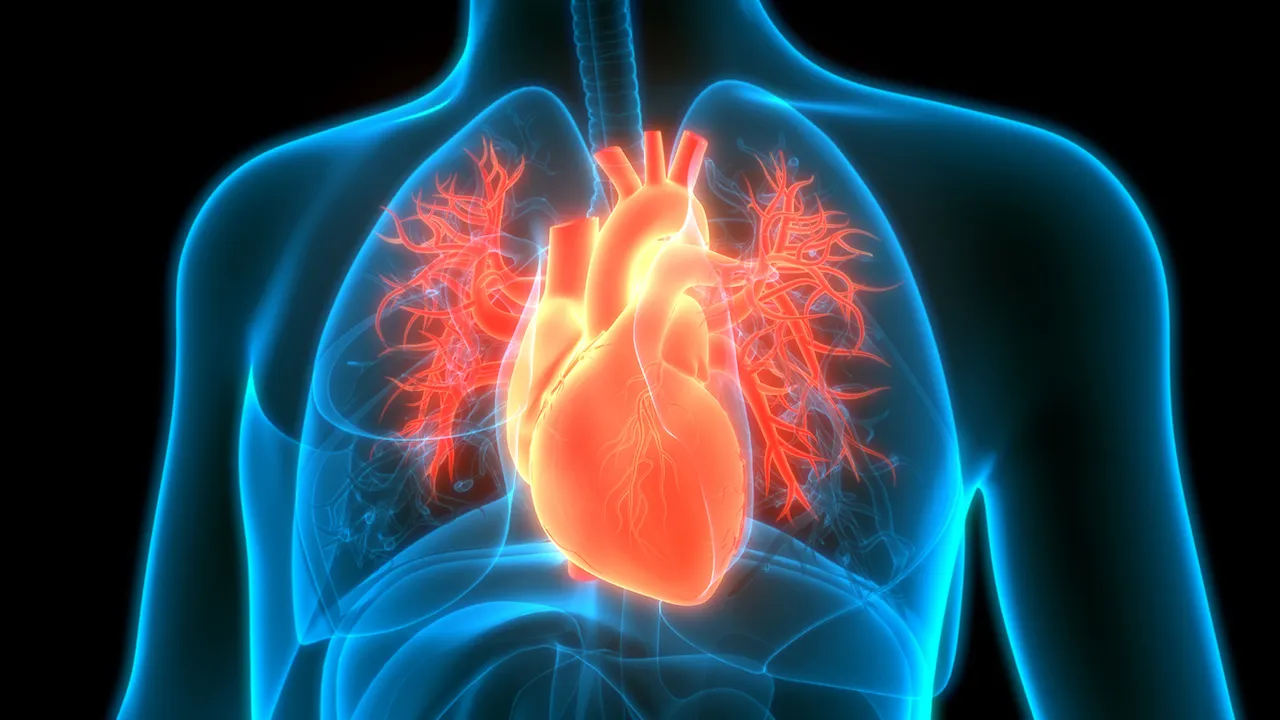Heart Disease
Heart disease is a leading cause of death worldwide, and it encompasses a broad range of conditions that affect the heart and blood vessels. At CoreMed Plus, we understand the serious impact that heart disease can have on individuals and their families, so we offer a range of services to help individuals manage their heart health and improve their overall well-being.
Our healthcare professionals are trained in the latest treatments and techniques for managing heart disease, including coronary artery disease, heart failure, arrhythmia, heart valve disease, and aortic aneurysms. We work with each individual to develop a personalized treatment plan that meets their unique needs, taking into account their medical history, symptoms, and other factors.
At CoreMed Plus, we offer diagnostic testing to determine the type and severity of the heart disease, medication management, lifestyle counseling, referrals to other healthcare providers and specialists, and support and resources to help individuals manage their symptoms and improve their cardiovascular health. We also monitor our patients’ heart function through regular checkups and diagnostic tests and adjust treatment plans to ensure the best possible outcomes.
Our goal at CoreMed Plus is to provide compassionate and comprehensive care to individuals with heart disease, helping them manage their conditions and improve their quality of life. We understand that heart disease can be a sensitive and complex issue, and we are committed to providing a non-judgmental and supportive environment where individuals can feel comfortable discussing their concerns and receiving the care they need.

What is Heart Disease
Heart disease, or cardiovascular disease, is a broad term that refers to a range of conditions affecting the heart and blood vessels. Some common types of heart disease include:
Coronary Artery Disease
Coronary artery disease is a type of heart disease that occurs when plaque builds up in the arteries that supply blood to the heart. Plaque is made up of cholesterol, fat, and other substances that can accumulate on the walls of the arteries and reduce blood flow to the heart.
Over time, plaque can cause the arteries to narrow and become stiff, leading to chest pain or discomfort, shortness of breath, fatigue, and other symptoms. In some cases, the plaque can rupture, forming a blood clot that can completely block the artery and cause a heart attack.
Risk factors for coronary artery disease include high blood pressure, high cholesterol, smoking, diabetes, obesity, a sedentary lifestyle, and a family history of heart disease. Treatment for coronary artery disease may include lifestyle changes such as a heart-healthy diet and regular exercise, medications to control blood pressure, cholesterol, or blood sugar levels, and in some cases, surgery or other medical procedures to improve blood flow to the heart.
At CoreMed Plus, we offer various services to help individuals with coronary artery disease manage their symptoms and reduce the risk of complications. Our team of healthcare professionals is trained in the latest treatments and techniques for managing coronary artery disease, and we work with each individual to develop a personalized treatment plan that meets their unique needs. We offer medication management, lifestyle counseling, referrals to other healthcare providers and specialists, and support and resources to help individuals improve their cardiovascular health and overall well-being.
Heart Failure
Heart failure is a type of heart disease that occurs when the heart cannot pump enough blood to meet the body’s needs. This can occur when the heart is damaged or weakened due to various causes, including coronary artery disease, high blood pressure, diabetes, and other conditions.
Symptoms of heart failure may include fatigue, shortness of breath, swelling in the legs or abdomen, rapid or irregular heartbeat, and difficulty exercising or performing daily activities. Heart failure can also increase the risk of complications such as heart attack, stroke, and kidney disease.
Treatment for heart failure may include lifestyle changes such as a heart-healthy diet and regular exercise, medications to improve heart function and reduce symptoms, and in some cases, surgery or other medical procedures to repair or replace damaged heart valves or other structures.
At CoreMed Plus, we offer various services to help individuals with heart failure manage their symptoms and improve their cardiovascular health. Our team of healthcare professionals is trained in the latest treatments and techniques for managing heart failure, and we work with each individual to develop a personalized treatment plan that meets their unique needs.
We offer medication management, lifestyle counseling, referrals to other healthcare providers and specialists, and support and resources to help individuals improve their cardiovascular health and overall well-being. We also monitor our patients’ heart function through regular checkups and diagnostic tests and adjust treatment plans to ensure the best possible outcomes.
Arrhythmia
Arrhythmia is a type of heart disease that refers to an abnormal heart rhythm. The heart usually beats in a regular pattern, but in individuals with arrhythmia, the heart may beat too fast, slow, or irregularly.
Arrhythmia symptoms may include palpitations, chest pain or discomfort, dizziness or lightheadedness, fainting, and shortness of breath. Some individuals with arrhythmia may not experience any symptoms at all.
Various factors, including heart disease, high blood pressure, diabetes, and other conditions, can cause arrhythmia. Treatment for arrhythmia may depend on the underlying cause and the severity of the condition. Mild arrhythmia may not require treatment, while more severe cases may require medications to control the heart rhythm or procedures such as catheter ablation or pacemaker implantation.
At CoreMed Plus, we offer various services to help individuals with arrhythmia manage their condition and improve their cardiovascular health. Our team of healthcare professionals is trained in the latest treatments and techniques for managing arrhythmia, and we work with each individual to develop a personalized treatment plan that meets their unique needs.
We offer diagnostic testing to determine the type and severity of the arrhythmia, medication management, referrals to other healthcare providers and specialists, and support and resources to help individuals manage their symptoms and improve their overall well-being. We also monitor our patients’ heart function through regular checkups and diagnostic tests and adjust treatment plans to ensure the best possible outcomes.

Heart Valve Disease
Heart valve disease is a type of heart disease that occurs when one or more of the valves in the heart do not function properly. The heart has four valves that regulate blood flow, and when a valve becomes damaged or weakened, it can affect blood flow to the body and cause symptoms.
Symptoms of heart valve disease may include fatigue, shortness of breath, chest pain, fainting, and swelling in the legs or abdomen. Heart valve disease can also increase the risk of complications such as heart failure, arrhythmia, and stroke.
Heart valve disease can be caused by various factors, including congenital heart defects, infections, and degenerative changes due to aging. Treatment for heart valve disease may depend on the underlying cause and the severity of the condition. Mild heart valve disease may not require treatment, while more severe cases may require medications to control symptoms, procedures such as valve repair or replacement, or surgery.
At CoreMed Plus, we offer various services to help individuals with heart valve disease manage their symptoms and improve their cardiovascular health. Our team of healthcare professionals is trained in the latest treatments and techniques for managing heart valve disease, and we work with each individual to develop a personalized treatment plan that meets their unique needs.
We offer diagnostic testing to determine the type and severity of the heart valve disease, medication management, referrals to other healthcare providers and specialists, and support and resources to help individuals manage their symptoms and improve their overall well-being. We also monitor our patients’ heart function through regular checkups and diagnostic tests and adjust treatment plans as needed to ensure the best possible outcomes.
Aortic Aneurysm
Aortic aneurysm is a type of heart disease that occurs when the aorta, the main blood vessel that carries blood from the heart to the rest of the body, becomes weakened and bulges. If the aneurysm ruptures, it can cause life-threatening bleeding.
An aortic aneurysm may not cause any symptoms, but some individuals may experience pain in the chest, abdomen, or back. Various factors, including high blood pressure, atherosclerosis, and genetic factors can cause aortic aneurysms.
Treatment for aortic aneurysm may depend on the size and location of the aneurysm, as well as the overall health of the individual. Small aneurysms may not require treatment, but larger aneurysms may require surgery or other medical procedures to repair or replace the damaged section of the aorta.
At CoreMed Plus, we offer a range of services to help individuals with aortic aneurysms manage their condition and reduce the risk of complications. Our team of healthcare professionals is trained in the latest treatments and techniques for managing aortic aneurysms, and we work with each individual to develop a personalized treatment plan that meets their unique needs.
We offer diagnostic testing to determine the size and location of the aneurysm, medication management, referrals to other healthcare providers and specialists, and support and resources to help individuals manage their symptoms and improve their overall well-being. We also monitor our patients’ heart function through regular checkups and diagnostic tests and adjust treatment plans as needed to ensure the best possible outcomes. Our goal is to provide compassionate and comprehensive care to individuals with aortic aneurysms, helping them manage their condition and improve their quality of life.

Don't Wait, Call Today!
At CoreMed Plus, we are passionate about helping individuals manage their heart disease and improve their cardiovascular health. We understand that heart disease can be a complex and challenging condition, so we offer a range of services to help individuals with various heart conditions, including coronary artery disease, heart failure, arrhythmia, heart valve disease, and aortic aneurysm.
Our team of healthcare professionals is trained in the latest treatments and techniques for managing heart disease, and we work with each individual to develop a personalized treatment plan that meets their unique needs. We believe in a comprehensive and compassionate approach to care, and we are dedicated to providing our patients with the support and resources they need to manage their symptoms, improve their overall well-being, and live their best lives.
At CoreMed Plus, we understand that heart disease can be a sensitive and complex issue, so we offer a non-judgmental and supportive environment where individuals can feel comfortable discussing their concerns and receiving the care they need. We are committed to providing our patients with the highest quality of care and always strive to improve our services and techniques to ensure the best possible outcomes.
If you or a loved one is living with heart disease, we encourage you to contact us at CoreMed Plus to learn more about how we can help. Our team is here to support you every step of the way, and we look forward to working with you to improve your heart health and overall well-being.
Contact Information
If you’re ready to take charge of your health and embark on a journey toward a healthier, happier life, we invite you to contact us today. Our compassionate and knowledgeable staff is excited to take your call and help you on your health journey. We will work closely with you to develop a customized treatment plan that is right for you and provide the support and care you need every step of the way.
Don’t let health concerns hold you back – contact CoreMed Plus today and let us help you achieve optimal health and wellness. We look forward to hearing from you and helping you achieve a healthier, happier life.
- Email: [email protected]
- Phone: +1 248-666-6005


